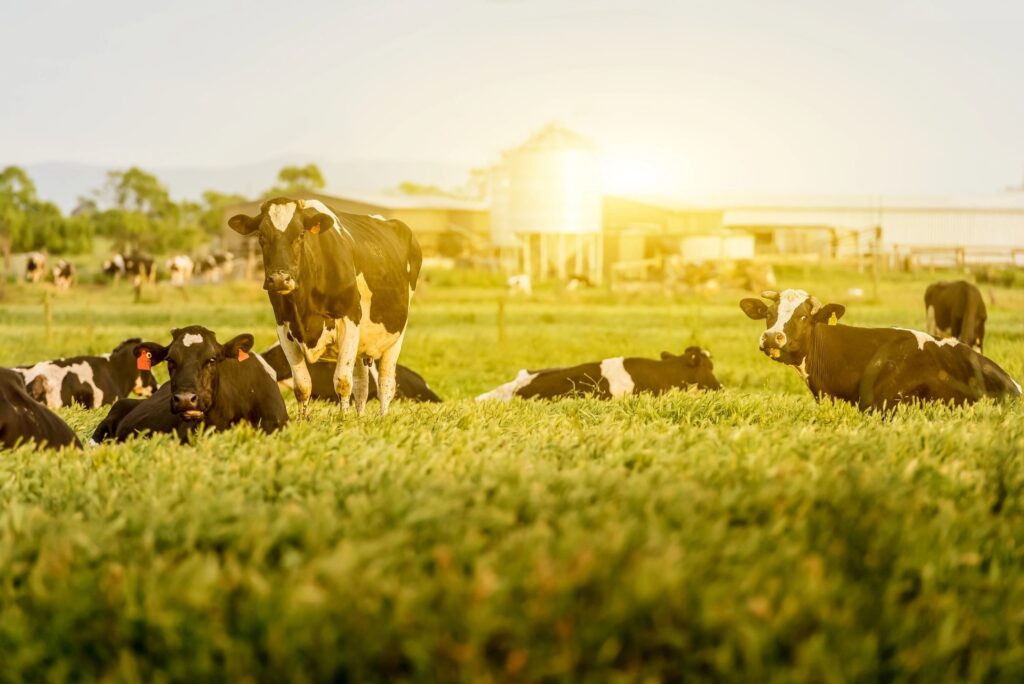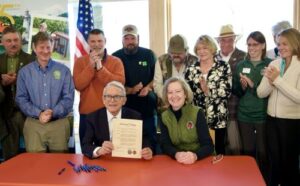OSU Certificate Programs Aimed at Agricultural Workforce Development


OSU Certificate Programs Aimed at Agricultural Workforce Development
By Sherrie R. Whaley
COLUMBUS, Ohio – Two new Ohio State University certificate programs, aimed at farm labor management and animal health and handling, are moving forward after a successful grant competition in the College of Food, Agricultural, and Environmental Sciences (CFAES).
The initiative was awarded $12,525 from the inaugural Spring 2020 Faculty Advisory Council and the Dean of CFAES Grant. The monies will fund the new project from May 1, 2020–March 31, 2022.
“Three of our agricultural and Extension educators identified a knowledge gap on dairy farms that related to management training and animal handling,” said Cathann A. Kress, vice president for agricultural administration and dean of CFAES. “This gap limits the ability of farm managers to retain employees and potentially leads to animal welfare and human safety concerns.”
The new non-credit certificate programs will be designed and implemented by Maurice Eastridge, professor and Extension dairy specialist in the Department of Animal Sciences; Shaun Wellert, veterinarian and senior lecturer at the Ohio State Agricultural Technical Institute in Wooster; and Chris Zoller, associate professor and Extension agriculture and natural resources educator in Tuscarawas County.
Managing labor on Ohio’s farms is a critical role for farm owners and middle managers. “Employee retention is often a struggle for farmers,” said Eastridge. “Frequently, high employee turnover rates are caused by improper recruiting, training, compensation, and inadequate communication by the management team.”
Eastridge and Zoller will offer the labor management certificate with a combination of online teaching and in-person Extension programming. A two-day in-person program, will be followed by assigned online content, with a final meeting of participants via Zoom.
The workshop will focus on the five functions of management: planning, organizing, staffing, leading, and controlling. The workshop will also address the human and legal agricultural risks.
Eastridge said, “Farm managers often express frustration about the lack of qualified and trained individuals able to fulfill the daily labor requirements on dairy farms. The situation is further complicated by Ohio’s low unemployment rate and competitive wages, which are often higher than current agriculture wage rates.”
In addition to training farm owners and managers, the new certificate program will offer a way to train animal handlers. “Working with and handling large livestock can be dangerous. As dairy farms consolidate, more of the daily interactions between cows and people fall to employees who often have little or no experience with modern animal husbandry procedures, animal handling techniques, or identification and treatment of diseases,” said Wellert.
Learning how to properly handle large animals and identify and treat disorders on a dairy farm is essential for providing proper animal welfare and ensuring sustainability of the industry. “Unfortunately, there are very few options to obtain formal training in these areas. This certificate program provides an affordable and accessible way for individuals to obtain skills that not only benefit the animals and profitability on the farm, but also meet social expectations for animal care.”
The animal health and handling certificate will also be a non-credit program. Conducted on the OSU Wooster campus, the workshop will focus on proper animal handling, antimicrobial stewardship, recordkeeping and residue avoidance, drug administration, calf health, and dystocia management.
These certificate programs will contribute to ensuring viable agricultural production and providing rural families with steady income. According to Eastridge, they will also provide a model for future CFAES workforce development certificate programs focused on farm systems management.
James Stefanak, an animal health dairy sales professional from Streetsboro, Ohio, noted that “an Extension-based certificate program will not only benefit the individual dairy that may send employees to the training, but also serve society as a whole. We know that when individuals receive certification in other areas such as manure management, pesticide application, and Beef Quality Assurance, compliance in these areas goes up, and a positive impact for both our environment and food supply is realized. Such programs are a continued investment in the industry, and allow Ohio to remain in the top dozen dairy-producing states in the country.”
Original plans were to offer the labor management workshops from January to March 2021, and the animal health and handling workshop in March 2021 on the ATI campus. Current circumstances with COVID-19, may require a delay in the work until the university has lifted research activity restrictions.









